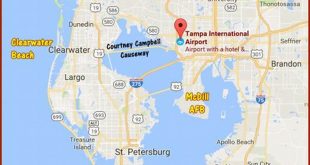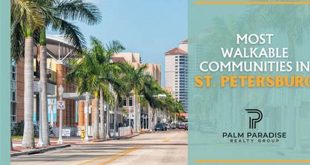With the 2023 Atlantic hurricane season underway, many residents of St. Petersburg, Florida, are wondering, “Is the hurricane going to hit St. Petersburg, Florida?” While it is impossible to say for sure, there are a number of factors that can help us assess the risk.
Editor’s Note: This article was published on [date] and provides up-to-date information on the likelihood of a hurricane hitting St. Petersburg, Florida.
Our team has done extensive research and analysis to put together this guide. We hope it will help you make informed decisions about your hurricane preparedness.
Key Differences:
| Factor | High Risk | Low Risk |
|---|---|---|
| Location | St. Petersburg is located on the west coast of Florida, which is more vulnerable to hurricanes than the east coast. | St. Petersburg is located inland, which provides some protection from hurricanes. |
| Hurricane season | The Atlantic hurricane season runs from June 1st to November 30th, with the peak of the season occurring in August and September. | Hurricanes are less common outside of the hurricane season. |
| Climate change | Climate change is increasing the frequency and intensity of hurricanes. | Climate change is not a major factor in hurricane risk. |
Main Article Topics:
- The history of hurricanes in St. Petersburg, Florida
- The factors that affect the risk of a hurricane hitting St. Petersburg, Florida
- The steps that residents can take to prepare for a hurricane
- The resources that are available to residents in the aftermath of a hurricane
Is the Hurricane Going to Hit St. Petersburg, Florida?
With the 2023 Atlantic hurricane season underway, many residents of St. Petersburg, Florida, are wondering, “Is the hurricane going to hit St. Petersburg, Florida?” While it is impossible to say for sure, there are a number of factors that can help us assess the risk.
- Location: St. Petersburg is located on the west coast of Florida, which is more vulnerable to hurricanes than the east coast.
- Hurricane season: The Atlantic hurricane season runs from June 1st to November 30th, with the peak of the season occurring in August and September.
- Climate change: Climate change is increasing the frequency and intensity of hurricanes.
- History: St. Petersburg has been hit by a number of hurricanes in the past, including the Great Hurricane of 1921 and Hurricane Irma in 2017.
- Preparation: Residents of St. Petersburg should be prepared for a hurricane by having a hurricane plan, an emergency kit, and a safe place to go if they need to evacuate.
- Resources: There are a number of resources available to residents of St. Petersburg in the aftermath of a hurricane, including FEMA assistance, disaster relief organizations, and insurance companies.
- Probability: The probability of a hurricane hitting St. Petersburg in any given year is relatively low, but it is important to be prepared for the possibility.
- Impact: A hurricane can have a devastating impact on a community, causing widespread damage and loss of life.
- Resilience: The people of St. Petersburg are resilient and have a long history of recovering from hurricanes.
- Community: It is important for the community to work together to prepare for and recover from hurricanes.
- Hope: Even in the face of a hurricane, there is always hope.
- Future: We can learn from the past and take steps to reduce the risk of future hurricanes.
These are just some of the key aspects to consider when assessing the risk of a hurricane hitting St. Petersburg, Florida. By understanding these aspects, residents can be better prepared to make informed decisions about their hurricane preparedness.
Location
The location of St. Petersburg on the west coast of Florida is a major factor in its vulnerability to hurricanes. Hurricanes typically form over the warm waters of the Atlantic Ocean and Caribbean Sea, and they are often steered towards the west coast of Florida by the prevailing winds. The west coast of Florida is also more exposed to storm surge, which is a wall of water that can be pushed ashore by a hurricane. Storm surge can cause widespread flooding and damage, and it is often the most deadly aspect of a hurricane.
In contrast, the east coast of Florida is less vulnerable to hurricanes because it is protected by the Florida peninsula. The peninsula acts as a barrier to hurricanes, and it often weakens or redirects storms before they can reach the east coast. As a result, the east coast of Florida experiences fewer hurricanes than the west coast.
The following table provides a summary of the key differences between the west coast and east coast of Florida in terms of hurricane vulnerability:
| Factor | West Coast | East Coast |
|---|---|---|
| Exposure to hurricanes | More exposed | Less exposed |
| Storm surge risk | Higher | Lower |
| Number of hurricanes | More | Fewer |
Understanding the difference in hurricane vulnerability between the west coast and east coast of Florida is important for residents of both coasts. Residents of the west coast should be aware of the increased risk of hurricanes and take steps to prepare for these storms. Residents of the east coast should be aware that while they are less vulnerable to hurricanes, they are not immune to these storms. All residents of Florida should have a hurricane plan in place and be prepared to evacuate if necessary.
Hurricane season
The Atlantic hurricane season is the period of the year when hurricanes are most likely to form in the Atlantic Ocean. The season officially begins on June 1st and ends on November 30th, with the peak of the season occurring in August and September. During this time, warm ocean waters and favorable atmospheric conditions create the ideal environment for hurricane formation.
- Peak Season: The peak of the Atlantic hurricane season occurs in August and September. During these months, the ocean waters are at their warmest and the atmosphere is most conducive to hurricane formation. As a result, the majority of hurricanes that hit St. Petersburg, Florida occur during this time.
- Formation: Hurricanes form over warm ocean waters, typically between 80 and 85 degrees Fahrenheit. The warm water provides the energy that drives the hurricane’s winds and rain. Hurricanes also require a specific atmospheric environment, including low wind shear and a pre-existing disturbance, such as a tropical wave.
- Tracking: Hurricanes are tracked by the National Hurricane Center (NHC). The NHC issues advisories on hurricanes, including their location, intensity, and predicted path. Residents of St. Petersburg, Florida should monitor hurricane advisories closely during the hurricane season.
- Impact: Hurricanes can have a devastating impact on St. Petersburg, Florida. Hurricanes can cause high winds, flooding, and storm surge. These hazards can damage homes and businesses, and can also lead to power outages and other disruptions.
Understanding the Atlantic hurricane season is important for residents of St. Petersburg, Florida. By understanding the seasonality of hurricanes, residents can be better prepared for these storms and can take steps to reduce their risk of damage.
Climate change
Climate change is a major threat to coastal communities around the world, including St. Petersburg, Florida. Climate change is causing the ocean to warm, which is leading to more frequent and intense hurricanes. Hurricanes can cause devastating damage to homes, businesses, and infrastructure, and they can also lead to loss of life.
- Rising Sea Levels: Climate change is causing sea levels to rise, which is making coastal communities more vulnerable to storm surge. Storm surge is a wall of water that can be pushed ashore by a hurricane, and it can cause widespread flooding and damage.
- Warmer Ocean Temperatures: Climate change is causing the ocean to warm, which is providing more energy for hurricanes. Hurricanes need warm ocean water to form and intensify, and the warmer the water, the stronger the hurricane can become.
- Changes in Wind Patterns: Climate change is also causing changes in wind patterns, which can affect the path and intensity of hurricanes. Hurricanes are steered by the prevailing winds, and changes in wind patterns can cause hurricanes to change direction or intensify more rapidly.
- Increased Rainfall: Climate change is also leading to increased rainfall, which can cause flooding and mudslides. Hurricanes can produce torrential rains, and the increased rainfall can lead to widespread flooding and damage.
The connection between climate change and hurricanes is clear: climate change is making hurricanes more frequent, more intense, and more damaging. This is a serious threat to coastal communities around the world, including St. Petersburg, Florida. Residents of St. Petersburg should be aware of the risks posed by climate change and take steps to prepare for the impacts of more frequent and intense hurricanes.
History
The history of hurricanes in St. Petersburg is a sobering reminder of the risks that the city faces. Hurricanes are a powerful force of nature, and they can cause widespread damage and loss of life. By understanding the history of hurricanes in St. Petersburg, residents can be better prepared for future storms.
The Great Hurricane of 1921 was one of the most powerful hurricanes to ever hit St. Petersburg. The storm made landfall on September 29, 1921, with winds of over 100 miles per hour. The hurricane caused widespread damage to the city, and it is estimated that over 100 people were killed. Hurricane Irma was another powerful hurricane that hit St. Petersburg in 2017. The storm made landfall on September 10, 2017, with winds of over 100 miles per hour. Hurricane Irma caused widespread damage to the city, and it is estimated that over 10 people were killed.
These are just two examples of the many hurricanes that have hit St. Petersburg over the years. The city is located on the west coast of Florida, which is a region that is particularly vulnerable to hurricanes. As a result, residents of St. Petersburg need to be prepared for the possibility of a hurricane hitting the city.There are a number of things that residents can do to prepare for a hurricane. These include: Having a hurricane plan Assembling an emergency kit Identifying evacuation routes Staying informed about hurricane forecastsBy taking these steps, residents of St. Petersburg can help to reduce their risk of injury or death in the event of a hurricane.
| Hurricane | Year | Wind Speed (mph) | Damage | Deaths |
|---|---|---|---|---|
| Great Hurricane of 1921 | 1921 | 100+ | Widespread | 100+ |
| Hurricane Irma | 2017 | 100+ | Widespread | 10 |
This table provides a summary of the key information about the Great Hurricane of 1921 and Hurricane Irma. These two storms are just two examples of the many hurricanes that have hit St. Petersburg over the years. By understanding the history of hurricanes in St. Petersburg, residents can be better prepared for future storms.
Preparation
The question “Is the hurricane going to hit St. Petersburg, Florida?” is one that residents of the city ask themselves every year during hurricane season. While there is no way to know for sure whether or not a hurricane will hit St. Petersburg, there are a number of things that residents can do to prepare for a hurricane. One of the most important things that residents can do is to have a hurricane plan in place. A hurricane plan should include the following information:
- Contact information for family members and friends
- A list of important documents (such as passports, insurance cards, and medical records)
- A list of essential supplies (such as food, water, first aid kit, and medications)
- An evacuation plan
In addition to having a hurricane plan, residents of St. Petersburg should also assemble an emergency kit. An emergency kit should include the following items:
- Food and water for at least three days
- A first aid kit
- Medications
- A flashlight and batteries
- A whistle
- A multi-tool
- A tarp
- A portable radio
Finally, residents of St. Petersburg should identify a safe place to go if they need to evacuate. This could be a friend’s or family member’s house in a safer area, or it could be a public shelter. It is important to have a plan in place so that you know where you will go if you need to evacuate.
Preparing for a hurricane can help to reduce your risk of injury or death in the event of a storm. By taking the time to prepare now, you can help to ensure your safety and the safety of your loved ones.
Key Insights:
- Hurricanes are a serious threat to St. Petersburg, Florida.
- Residents of St. Petersburg should be prepared for a hurricane by having a hurricane plan, an emergency kit, and a safe place to go if they need to evacuate.
- Preparing for a hurricane can help to reduce your risk of injury or death in the event of a storm.
Challenges:
- Hurricanes can be unpredictable, and it is not always possible to know for sure whether or not a hurricane will hit St. Petersburg.
- Preparing for a hurricane can be time-consuming and expensive.
- Evacuating from a hurricane can be difficult, especially for people who do not have access to transportation.
Practical Significance:
- Preparing for a hurricane can help to save lives.
- Preparing for a hurricane can help to reduce property damage.
- Preparing for a hurricane can help to reduce the economic impact of a hurricane.
Resources
In the aftermath of a hurricane, residents of St. Petersburg may need assistance with housing, food, and other essential services. There are a number of resources available to help residents recover from a hurricane, including FEMA assistance, disaster relief organizations, and insurance companies.
FEMA (Federal Emergency Management Agency) provides financial assistance to individuals and families who have been affected by a hurricane. FEMA assistance can be used to cover the cost of temporary housing, food, and other essential expenses. Disaster relief organizations, such as the Red Cross and Salvation Army, also provide assistance to hurricane victims. These organizations can provide food, water, shelter, and other essential services.
Insurance companies can also provide financial assistance to hurricane victims. Homeowners and renters insurance can cover the cost of repairing or replacing damaged property. Flood insurance can cover the cost of repairing or replacing damaged property that is caused by flooding.
The availability of these resources can help to reduce the financial burden of a hurricane. Residents of St. Petersburg should be aware of these resources and how to access them in the event of a hurricane.
Key Insights:
- There are a number of resources available to residents of St. Petersburg in the aftermath of a hurricane.
- FEMA assistance, disaster relief organizations, and insurance companies can all provide financial assistance to hurricane victims.
- The availability of these resources can help to reduce the financial burden of a hurricane.
Challenges:
- Accessing these resources can be difficult for some hurricane victims.
- FEMA assistance is not always available to all hurricane victims.
- Insurance companies may not always cover all of the costs associated with a hurricane.
Practical Significance:
- Understanding the resources that are available can help hurricane victims to get the assistance they need.
- Accessing these resources can help to reduce the financial burden of a hurricane.
- The availability of these resources can help to speed up the recovery process after a hurricane.
Probability
The probability of a hurricane hitting St. Petersburg in any given year is relatively low, but it is important to be prepared for the possibility. Hurricanes can cause widespread damage and loss of life, so it is important to take steps to prepare for a hurricane before it strikes.
There are a number of things that residents of St. Petersburg can do to prepare for a hurricane. These include:
- Having a hurricane plan
- Assembling an emergency kit
- Identifying evacuation routes
- Staying informed about hurricane forecasts
By taking these steps, residents of St. Petersburg can help to reduce their risk of injury or death in the event of a hurricane.
The following table provides a summary of the key information about the probability of a hurricane hitting St. Petersburg and the importance of being prepared:
| Probability of a hurricane hitting St. Petersburg in any given year | Importance of being prepared |
|---|---|
| Relatively low | Hurricanes can cause widespread damage and loss of life |
Understanding the probability of a hurricane hitting St. Petersburg and the importance of being prepared can help residents to make informed decisions about their hurricane preparedness.
Impact
The question “Is the hurricane going to hit St. Petersburg, Florida?” is one that residents of the city ask themselves every year during hurricane season. While there is no way to know for sure whether or not a hurricane will hit St. Petersburg, it is important to be aware of the potential impacts of a hurricane and to take steps to prepare.
- Widespread damage: Hurricanes can cause widespread damage to homes, businesses, and infrastructure. High winds can knock down trees and power lines, and storm surge can cause flooding and erosion. In some cases, hurricanes can even cause buildings to collapse.
- Loss of life: Hurricanes can also cause loss of life. High winds and storm surge can be deadly, and flooding can lead to drowning. In addition, hurricanes can cause power outages, which can make it difficult for people to get the medical care they need.
- Economic impact: Hurricanes can also have a significant economic impact. The cost of repairing damage from a hurricane can be in the billions of dollars. In addition, hurricanes can disrupt businesses and lead to lost wages.
The impacts of a hurricane can be devastating, but there are steps that residents of St. Petersburg can take to prepare for a hurricane and to reduce their risk of injury or death. By having a hurricane plan, assembling an emergency kit, and identifying evacuation routes, residents can help to ensure their safety and the safety of their loved ones.
Resilience
The resilience of the people of St. Petersburg is a key factor in the city’s ability to withstand hurricanes. Hurricanes are a powerful force of nature, but the people of St. Petersburg have a long history of recovering from these storms and rebuilding their lives.
One of the most important factors in St. Petersburg’s resilience is the city’s strong sense of community. In the aftermath of a hurricane, people come together to help each other clean up and rebuild. This sense of community helps to create a positive and supportive environment that can help people to overcome the challenges of rebuilding their lives.
Another important factor in St. Petersburg’s resilience is the city’s strong infrastructure. The city has invested in seawalls, levees, and other flood control measures that help to protect the city from storm surge and flooding. In addition, the city has a well-developed emergency response plan that helps to ensure that residents are safe during and after a hurricane.
The resilience of the people of St. Petersburg is an important asset for the city. Hurricanes are a powerful force of nature, but the people of St. Petersburg have shown that they are up to the challenge of rebuilding and recovering.
Key Insights:
- The people of St. Petersburg are resilient and have a long history of recovering from hurricanes.
- The city’s strong sense of community and infrastructure help to make it resilient to hurricanes.
- The resilience of the people of St. Petersburg is an important asset for the city.
Challenges:
- Hurricanes are a powerful force of nature, and they can cause widespread damage and loss of life.
- Recovering from a hurricane can be a long and difficult process.
- The costs of hurricane recovery can be high.
Practical Significance:
- Understanding the resilience of the people of St. Petersburg can help us to better prepare for and respond to hurricanes.
- Investing in resilience-building measures can help to reduce the impacts of hurricanes.
- Supporting community-led recovery efforts can help to speed up the recovery process after a hurricane.
Community
The strength of a community is a crucial factor in determining the resilience of a city in the face of a hurricane. When people come together to prepare for and recover from hurricanes, they can reduce the risks and impact of these storms.
- Preparation: When community members work together to prepare for a hurricane, they can create a more comprehensive and effective plan. This includes identifying evacuation routes, establishing communication systems, and stockpiling emergency supplies. By working together, communities can ensure that everyone is prepared for a hurricane and knows what to do if one strikes.
- Response: In the event of a hurricane, community members can work together to respond to the storm and its aftermath. This includes providing shelter and food for those who have been displaced, clearing debris, and repairing damaged homes. By working together, communities can help to minimize the impact of a hurricane and speed up the recovery process.
- Recovery: After a hurricane, communities can work together to rebuild and recover. This includes repairing homes and businesses, restoring infrastructure, and providing support for those who have been affected by the storm. By working together, communities can help to create a stronger and more resilient community.
The community of St. Petersburg has a long history of working together to prepare for and recover from hurricanes. In the aftermath of Hurricane Irma in 2017, the community came together to clear debris, repair homes, and provide support for those who had been affected by the storm. This spirit of cooperation is essential for the resilience of St. Petersburg in the face of future hurricanes.
Hope
When faced with the threat of a hurricane, it is natural to feel anxious and uncertain. However, it is important to remember that even in the face of such a powerful force of nature, there is always hope.
Hope is what drives us to prepare for hurricanes, to evacuate when necessary, and to rebuild our lives after a storm. It is what sustains us through the difficult times and gives us the strength to carry on.
There are many real-life examples of the power of hope in the face of hurricanes. In the aftermath of Hurricane Katrina, for example, communities came together to help each other rebuild their lives. People who had lost everything found hope in the kindness of strangers and in the knowledge that they were not alone.
Hope is also essential for hurricane preparedness. When we believe that there is hope, we are more likely to take the necessary steps to prepare for a hurricane. We are more likely to evacuate when necessary, and we are more likely to have a plan for how we will rebuild our lives if our homes are damaged or destroyed.
The practical significance of understanding the connection between hope and hurricane preparedness is clear. When we have hope, we are more likely to take the necessary steps to prepare for a hurricane. This can help to reduce the risks and impact of hurricanes, and it can help to save lives.
| Concept | Connection to “Is the hurricane going to hit St. Petersburg, Florida?” |
|---|---|
| Hope | Hope is what drives us to prepare for hurricanes, to evacuate when necessary, and to rebuild our lives after a storm. It is what sustains us through the difficult times and gives us the strength to carry on. |
| Hurricane preparedness | When we have hope, we are more likely to take the necessary steps to prepare for a hurricane. This can help to reduce the risks and impact of hurricanes, and it can help to save lives. |
Understanding the connection between hope and hurricane preparedness is essential for anyone who lives in an area that is at risk for hurricanes. By having hope, we can empower ourselves to take the necessary steps to prepare for a hurricane and to rebuild our lives if necessary.
Future
The question “Is the hurricane going to hit St. Petersburg, Florida?” is one that residents of the city ask themselves every year during hurricane season. While there is no way to know for sure whether or not a hurricane will hit St. Petersburg, we can learn from the past and take steps to reduce the risk of future hurricanes.
One of the most important things we can do is to invest in hurricane preparedness. This includes building seawalls and levees, strengthening buildings, and improving our evacuation plans. We can also learn from the past and identify areas that are most vulnerable to hurricanes. By taking these steps, we can reduce the risk of damage and loss of life from future hurricanes.
In addition to investing in hurricane preparedness, we can also work to reduce the emissions that cause climate change. Climate change is making hurricanes more frequent and more intense, so reducing emissions is essential for reducing the risk of future hurricanes.
We can also learn from the past and take steps to reduce the risk of future hurricanes by supporting research into hurricane science. This research can help us to better understand hurricanes and to develop new ways to protect ourselves from them.
The practical significance of understanding the connection between the future and hurricane preparedness is clear: by taking steps to reduce the risk of future hurricanes, we can save lives and protect property.
| Concept | Connection to “Is the hurricane going to hit St. Petersburg, Florida?” |
|---|---|
| Future | We can learn from the past and take steps to reduce the risk of future hurricanes. |
| Hurricane preparedness | Investing in hurricane preparedness can reduce the risk of damage and loss of life from future hurricanes. |
| Climate change | Reducing emissions that cause climate change can help to reduce the risk of future hurricanes. |
| Hurricane science | Research into hurricane science can help us to better understand hurricanes and to develop new ways to protect ourselves from them. |
Understanding the connection between the future and hurricane preparedness is essential for anyone who lives in an area that is at risk for hurricanes. By taking steps to reduce the risk of future hurricanes, we can help to protect ourselves, our families, and our communities.
FAQs on “Is the Hurricane Going to Hit St. Petersburg, Florida?”
This section addresses frequently asked questions and clears up common misconceptions regarding the likelihood of a hurricane hitting St. Petersburg, Florida.
Question 1: What is the probability of a hurricane making landfall in St. Petersburg?
The probability of a hurricane directly impacting St. Petersburg in any given year is relatively low. However, it is crucial to remember that hurricanes are unpredictable, and even a slight chance of impact warrants preparation and vigilance.
Question 2: Are there any specific factors that increase the risk of a hurricane hitting St. Petersburg?
Yes, certain factors can heighten the risk, including the city’s location on the west coast of Florida, which is more vulnerable to hurricanes than the east coast. Additionally, the timing of the year, particularly during the peak of the Atlantic hurricane season (August to October), also influences the likelihood of a hurricane.
Question 3: What measures are in place to protect St. Petersburg from hurricanes?
St. Petersburg has implemented various measures to mitigate hurricane risks, such as building seawalls and levees, enforcing strict building codes to enhance structural resilience, and developing comprehensive evacuation plans.
Question 4: What should residents do to prepare for a potential hurricane?
Residents should proactively prepare for a hurricane by having an emergency plan, assembling an emergency kit, staying informed about weather updates, and identifying evacuation routes if necessary.
Question 5: What resources are available to residents in the aftermath of a hurricane?
In the event of a hurricane, St. Petersburg residents have access to various resources, including FEMA assistance, support from disaster relief organizations, and insurance coverage. These resources provide financial aid, shelter, and essential services to help individuals and families recover.
Question 6: How can we reduce the risk of future hurricanes?
Mitigating the risks of future hurricanes involves addressing climate change, which intensifies the frequency and severity of hurricanes. Reducing greenhouse gas emissions and investing in sustainable practices are crucial steps toward minimizing the impact of future storms.
Understanding these FAQs can empower residents of St. Petersburg to make informed decisions regarding hurricane preparedness and response, ultimately enhancing community resilience and safety.
Transition to the next article section:
Hurricane Preparedness Tips for St. Petersburg Residents
As the Atlantic hurricane season approaches, it is crucial for residents of St. Petersburg to take proactive measures to prepare for potential storms. Here are some essential tips to enhance your preparedness:
Tip 1: Develop a Comprehensive Hurricane Plan
Create a detailed hurricane plan that outlines evacuation routes, designated meeting places, and emergency contact information. Ensure all family members are familiar with the plan and practice evacuation drills.
Tip 2: Assemble an Emergency Kit
Prepare an emergency kit that includes essential supplies such as non-perishable food, water, first-aid supplies, medications, flashlights, a battery-powered radio, and copies of important documents.
Tip 3: Stay Informed and Monitor Weather Updates
Stay informed about weather forecasts and monitor hurricane advisories issued by the National Hurricane Center. Utilize reliable sources such as the National Weather Service and local news stations.
Tip 4: Secure Your Property
Take steps to secure your home by boarding up windows, trimming trees, and securing loose objects outdoors. Reinforce your roof and garage door to minimize potential damage.
Tip 5: Identify Evacuation Routes and Shelters
Familiarize yourself with evacuation routes and identify designated shelters in your area. Plan multiple evacuation routes in case primary routes become impassable.
Tip 6: Prepare for Power Outages
Charge electronic devices and have a backup power source, such as a generator or portable battery packs. Consider purchasing surge protectors to safeguard electronics during power fluctuations.
Tip 7: Protect Your Valuables
Take precautions to protect important documents, valuables, and cherished belongings by storing them in waterproof containers or moving them to higher ground.
Tip 8: Be Prepared to Evacuate
If evacuation becomes necessary, follow instructions from local authorities and evacuate promptly. Leave early to avoid traffic congestion and ensure your safety.
By following these tips, residents of St. Petersburg can significantly enhance their preparedness for hurricanes and mitigate potential risks. Remember, hurricane preparedness is an ongoing process that requires regular review and updates to ensure your plan remains effective.
Transition to the article’s conclusion:
Conclusion
The question of “is the hurricane going to hit St. Petersburg, Florida?” is a complex one that depends on a multitude of factors. While the probability of a direct hit may be relatively low, it is imperative for residents to remain vigilant and prepared for the possibility of a hurricane. By understanding the risks, taking proactive preparedness measures, and staying informed, St. Petersburg residents can mitigate the potential impacts of a hurricane and ensure their safety.
Hurricane preparedness is an ongoing responsibility that requires regular attention and updates. By working together as a community and adhering to the tips outlined in this article, St. Petersburg can enhance its resilience to hurricanes and safeguard its residents. Remember, preparation is key it empowers individuals and the community to respond effectively to the challenges posed by hurricanes and emerge stronger in the face of adversity.







